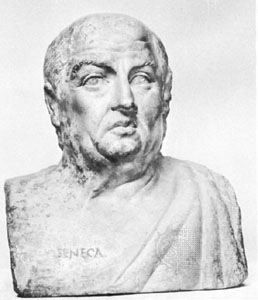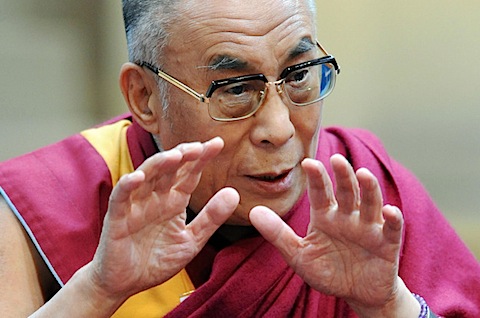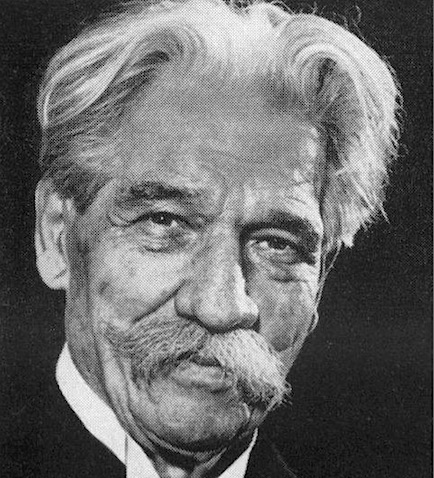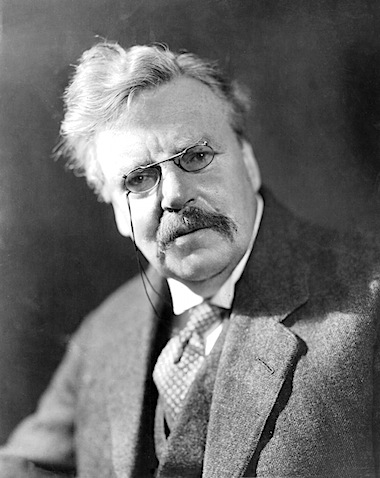The Law of Benefits

“This is the law of benefits between men; the one ought to forget at once what was given, and the other ought never to forget what he has received.”
–Seneca (a.k.a. Lucius Annaeus Seneca, a.k.a. Seneca the Younger, Spanish-born Roman Philosopher and Statesman, c.4 B.C.- A.D. 65)
A Daily Prayer

“Every day, think as you wake up, today I am fortunate to be alive, I have a precious human life, I am not going to waste it.
I am going to use all my energies to develop myself, to expand my heart out to others; to achieve enlightenment for the benefit of all beings.
I am going to have kind thoughts towards others, I am not going to get angry or think badly about others.
I am going to benefit others as much as I can.”
–The 14th Dalai Lama (a.k.a. Tenzin Gyatso, Tibetan Religious and Political Leader, 1935-)
Rekindling Your Light

“Sometimes our light goes out but is blown into a flame by another human being. Each of us owes deepest thanks to those who have rekindled this light.”
–Albert Schweitzer (Alsatian-born Theologian, Philosopher, Mission Doctor and, in 1952, Winner of the Nobel Peace Prize, 1875-1965)
Gratitude

“When it comes to life the critical thing is whether you take things for granted or take them with gratitude.”
–G.K. Chesterton (a.k.a. Gilbert Keith Chesterton, English Writer and Poet, 1874-1936)
Albert Schweitzer
Today is the birthday of Albert Schweitzer who was born in Kaysersberg, Alsace-Lorraine, Germany. It is one of those parts of the world that has often changed hands and is now in Haut-Rhin, Alsace, France.
He was a remarkable man: as a youngster he was a famous organist and was highly interested in the music of Johann Sebastian Bach, whom he regarded as a religious mystic.
He decided that after the age of 30 he would dedicate himself to the service of humanity and became both a theologian and physician. He received the 1952 Nobel Peace Prize in 1953 for his philosophy of "reverence for life" expressed in many ways but most famously in founding and sustaining the Lambaréné Hospital in Gabon, west central Africa.
I have heard some people be very critical of Schweitzer, describing him as patronizing toward Africa. I don’t think that is right. If you look at his actions and his writings, it is clear that he had an extraordinary compassion and vision.
Here are a few of his writings from my own collection. I hope that you find some of them as inspirational as I have.
“A great secret of success is to go through life as a man who never gets used up.”
“A heavy guilt rests upon us for what the whites of all nations have done to the colored peoples. When we do good to them, it is not benevolence it is atonement.”
“A man can do only what he can do. But if he does that each day he can sleep at night and do it again the next day.”
“A man does not have to be an angel to be a saint.”
"All the kindness which a man puts out into the world
works on the heart and thoughts of mankind.”
“All work that is worth anything is done in faith.”
“An idea is, in the end, always stronger than circumstances.”
“Anyone who proposes to do good must not expect people to roll stones out of their way, but must accept their lot calmly, even if people roll a few stones upon it.”
“As soon as man does not take his existence for granted, but beholds it as something unfathomably mysterious, thought begins.”
“As we acquire more knowledge, things do not become more comprehensible, but more mysterious.”
“At that point in life where your talent meets the needs of the world, that is where God wants you to be.”
“At times our own light goes out and is rekindled by a spark from another person. Each of us has cause to think with deep gratitude of those who have lighted the flame within us.”
“Be faithful to your love and you will be recompensed beyond measure.”
“Because I have confidence in the power of Truth and of the spirit, I believe in the future of mankind.”
“By having reverence for life, we enter into a spiritual relation with the world.”
“Do something wonderful, people may imitate it.”
“Ethical existence is the highest manifestation of spirituality.”
“Ethics, too, are nothing but reverence for life. That is what gives me the fundamental principle of morality, namely, that good consists in maintaining, promoting, and enhancing life, and that destroying, injuring, and limiting life are evil.”
“Every man has to seek his own way to make himself more noble and to realize his own true worth”
“Example is not the main thing in influencing others. It is the only thing.”
“Happiness is nothing more than good health and a bad memory.”
“I don’t know what your destiny will be, but one thing I do know: the only ones among you who will be really happy are those who have sought and found how to serve.”
“I have always held firmly to the thought that each one of us can do a little to bring some portion of misery to an end.”
"If you love what you are doing, you will be successful."
“In everyone’s life, at some time, our inner fire goes out. It is then burst into flame by an encounter with another human being. We should all be thankful for those people who rekindle the inner spirit.”
“In the same way as the tree bears the same fruit year after year, but each time new fruit, all lastingly valuable ideas in thinking must always be reborn.”
“It seemed to me a matter of course that we should all take our share of the burden of pain which lies upon the world.”
“Knowing all truth is less than doing a little bit of good.”
“Man has lost the capacity to foresee and to forestall. He will end by destroying the earth.”
“Man is a clever animal who behaves like an imbecile.”
“Medicine is not only a science, but also the art of letting our own individuality interact with the individuality of the patient.”
“Natural and super-natural, temporal and eternal – continuums, not absolutes.”
“No ray of sunshine is ever lost, but the green which it awakens into existence needs time to sprout, and it is not always granted for the sower to see the harvest. All work that is worth anything is done in faith.”
“One thing I know: the only ones among you who will be really happy are those who will have sought and found how to serve.”
“One truth stands firm. All that happens in world history rests on something spiritual. If the spiritual is strong, it creates world history. If it is weak, it suffers world history.”
“One who gains strength by overcoming obstacles possesses the only strength which can overcome adversity.”
“Only those who respect the personality of others can be of real use to them.”
“Reverence for life affords me my fundamental principle of morality, namely that good consists in maintaining, assisting, and enhancing life, and that to destroy, to harm, or to hinder life is evil.”
“Success is not the key to happiness; Happiness is the key to success. If you love what you are doing, you will be successful.”
“The awareness that we are all human beings together has become lost in war and through politics.”
“The first step in the evolution of ethics is an enlargement of the sense of solidarity with other human beings.”
“The greatest discovery of any generation is that human beings can alter their lives by altering their attitudes of mind.” (He is here reiterating something said by the great psychologist and philosopher William James)
“The human spirit is not dead. It lives on in secret…. It has come to believe that compassion, in which all ethics must take root, can only attain its full breadth and depth if it embraces all living creatures and does not limit itself to mankind.”
“The man who h
as become a thinking being feels a compulsion to give to every will-to-live the same reverence for life that he gives to his own.”
“The tragedy of life is what dies inside a man while he lives.”
“The true worth of a man is not to be found in man himself, but in the colors and textures that come alive in others.”
“There are two means of refuge from the miseries of life: music and cats.”
“There is no higher religion than human service. To work for the common good is the greatest creed.”
“There is so much coldness in the world because we are afraid to be as cordial as we really are.”
“To educate yourself for gratitude means to take nothing for granted but to seek out and value the kindness that lies behind the action.”
“Until he extends his circle of compassion to include all living things, man will not himself find peace.”
“Very little of the great cruelty shown by men can really be attributed to cruel instinct. Most of it comes from thoughtlessness or inherited habit. The roots of cruelty, therefore, are not so much strong as widespread. But the time must come when inhumanity protected by custom and thoughtlessness will succumb before humanity championed by thought. Let us work that this time may come.”
“We cannot possibly let ourselves get frozen into regarding everyone we do not know as an absolute stranger.”
“Wherever a man turns he can find someone who needs him.”
“Your life is something opaque, not transparent, as long as you look at it in an ordinary human way. But if you hold it up against the light of God’s goodness, it shines and turns transparent, radiant and bright. And then you ask yourself in amazement: Is this really my own life I see before me?”
Healing and Spirituality
For thousands of years, spiritual teachers and healers were one and the same. The first hospitals in Europe were founded by religious orders. There was always a rather interesting split: folk healers were primarily, though not exclusively female, while the hospitals were male dominated. One of the fruits of the Enlightenment was the separation of healing from faith. The separation of body and spirit was pursued vigorously by medical science as it advanced. Indeed, many in the medical establishment echoed Freud in comparing religion to a neurosis. A well-known figure in British medicine has made no bones about his opposition to the involvement of spirituality in medicine, which he says is the proper business of the church, and has nothing to do with science.
Over the last two decades, things have been changing. A number of physicians and scientists have recognized the importance of re-introducing a spiritual perspective into medicine. But do they have any right to do so? The answer is a definite “Yes”! There has been a gradual build up of scientific evidence that prayer and faith can protect health. A second area of investigation is whether religious or spiritual practice, in particularly intercessory prayer, can affect the health of those being prayed for?
First is the clear observation that faith and prayer can support physical and emotional well-being as well as the health of relationships. One school of thought is that this is all the consequence of an internal healing mechanism. Over 30 years ago Herbert Benson at Harvard first described the “Relaxation response,” a simple method of using techniques derived from Transcendental Meditation for changing a person’s emotional response to stress. He then demonstrated that prayer could also elicit a relaxation response.
In recent years, there has been a global effort to research the connections between faith and health, and I have been particularly impressed by the body of work being generated by the Center for Spirituality, Theology, and Health at Duke University, that has provided incontrovertible evidence that religious people live longer, healthier lives. This seems to be more than just the stress-reducing impact of prayer and meditation.
We also have evidence that thankfulness and an attitude of gratitude may have a lasting impact on your mood and state of health and well-being.
Second is intercessory prayer. We owe an enormous debt of gratitude to the psychiatrist Daniel Benor. Like most people trained in Western medicine, he was very skeptical about spiritual healing until he saw a tough case that failed to respond to conventional medicine but was cured by a spiritual healer. He then started to study spiritual healing and has written the standard textbook on the subject, which runs to FOUR volumes. He once told me that the evidence for spiritual healing is stronger than the evidence for almost any other field of unorthodox medicine and stronger than the evidence for quite a number of practices in orthodox medicine!
The moral of the story? Do not neglect your own spirituality or the spirituality of those around you, and remember that empirical scientific research is showing us yet again, that the power of worship and prayer are far from being neuroses or primitive superstitions.
Technorati tags: spirituality, healing, thankfulness, prayer, Herbert Benson, Daniel Benor






